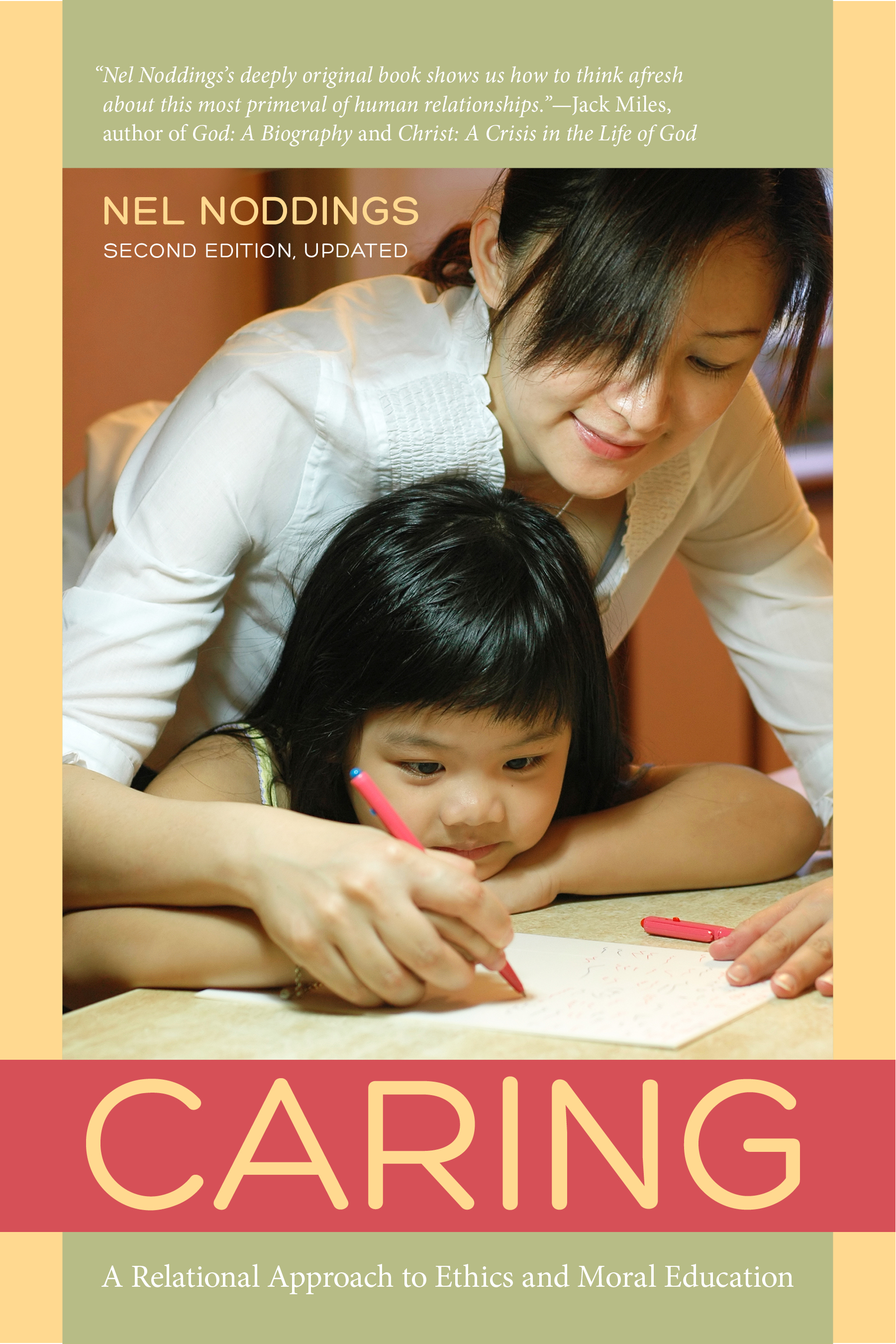tion>
CARING
CARING
A Relational Approach to Ethics
&
Moral Education
SECOND EDITION, UPDATED
UNIVERSITY OF CALIFORNIA PRESS
BerkeleyLos AngelesLondon
University of California Press, one of the most distinguished university presses in the United States, enriches lives around the world by advancing scholarship in the humanities, social sciences, and natural sciences. Its activities are supported by the UC Press Foundation and by philanthropic contributions from individuals and institutions. For more information, visit www.ucpress.edu.
University of California Press
Berkeley and Los Angeles, California
University of California Press, Ltd.
London, England
First Paperback Printing 1986
© 1984, 2003, 2013 by The Regents of the University of California
ISBN 978-0-520-27570-6
eISBN 9780520957343
Library of Congress Cataloging-in-Publication Data available upon request
Manufactured in the United States of America
22 21 20 19 18 17 16 15 14 13
10 9 8 7 6 5 4 3 2 1
In keeping with a commitment to support environmentally responsible and sustainable printing practices, UC Press has printed this book on Natures Natural, a fiber that contains 30% post-consumer waste and meets the minimum requirements of ANSI/NISO Z39.48-1992 (R 1997) (Permanence of Paper).
To my husband, Jim, who has never stopped caring.
CONTENTS
ACKNOWLEDGMENTS
PREFACE TO THE 2013 EDITION
PREFACE TO THE 2003 EDITION
INTRODUCTION
1.WHY CARE ABOUT CARING?
The fundamental nature of caring
Problems arising in the analysis of one-caring
2.THE ONE-CARING
Thinking and feeling: turning points
Circles and chains
Asymmetry and reciprocity in caring
The ethical ideal and the ethical self
Rules and conflicts
3.THE CARED-FOR
The one-caring’s attitude and its effects
Apprehension of caring necessary to the caring relationship; unequal meetings
Reciprocity
The ethics of being cared for
4.AN ETHIC OF CARING
From natural to ethical caring
Obligation
Right and wrong
The problem of justification
Women and morality: virtue
The toughness of caring
5.CONSTRUCTION OF THE IDEAL
The nature of the ideal
Constraints and attainability
Diminished ethical capacity
Nurturing the ideal
Maintaining the ideal
6.ENHANCING THE IDEAL: JOY
Our basic reality and affect
How should we describe emotion?
Perception and emotion: the object of emotion and its appraisal
Emotions as reasons
Joy as exalted
Receptivity and joy in intellectual work
Joy as basic affect
7.CARING FOR ANIMALS, PLANTS, THINGS AND IDEAS
Our relation with animals
Our relation to plants
Things and ideas
Summary
8.MORAL EDUCATION
What is moral education?
The one-caring as teacher
Dialogue
Practice
Confirmation
Organizing schools for caring
AFTERWORD
NOTES
SELECT BIBLIOGRAPHY
INDEX
ACKNOWLEDGMENTS
AMONG THOSE WHO helped greatly in the initial stages of this project by making constructive suggestions on my first “caring” papers are Nick Burbules, William Doll, Bruce Fuller, Brian Hill, William Pinar, Mary Anne Raywid, Gerald Reagan, and, in general, the California Association for Philosophy of Education. For steady encouragement throughout the process, I would like to thank Elliot Eisner, Julius Moravcsik, and David Tyack. For careful reading of the final draft and useful editorial comments, I thank Donald Arnstine, Shirley Warren, and Walter Rosenauer. For constant support and encouragement, I thank John Miles, Karen Reeds, and Laurie Taylor of the University of California Press. Finally, very special thanks are given to Denis Phillips, who read early drafts with meticulous care and offered many valuable criticisms.
